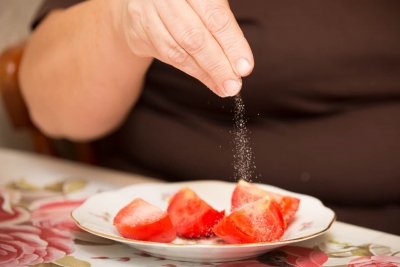
Salt in the diet can come from processed foods, either because they are particularly high in salt (such as ready meals, processed meats like bacon, ham and salami, cheese, salty snack foods, and instant noodles, among others) or because they are consumed frequently in large amounts (such as bread and processed cereal products). Salt is also added to food during cooking (bouillon and stock cubes) or at the table (soy sauce, fish sauce and table salt).
For adults: WHO recommends that adults consume less than 5 g (just under a teaspoon) of salt per day.
For children: WHO recommends that the recommended maximum intake of salt for adults be adjusted downward for children aged two to 15 years based on their energy requirements relative to those of adults.
All salt that is consumed should be iodized or “fortified” with iodine, which is essential for healthy brain development in the fetus and young child and optimizing people’s mental function in general.
Picture Credit : Google

